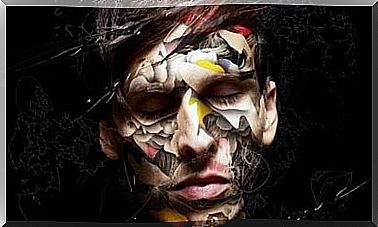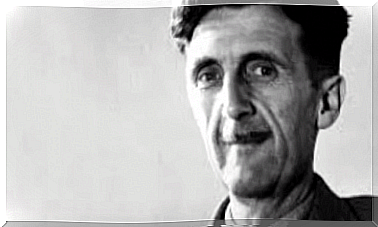Tell Me Again How I Was Born
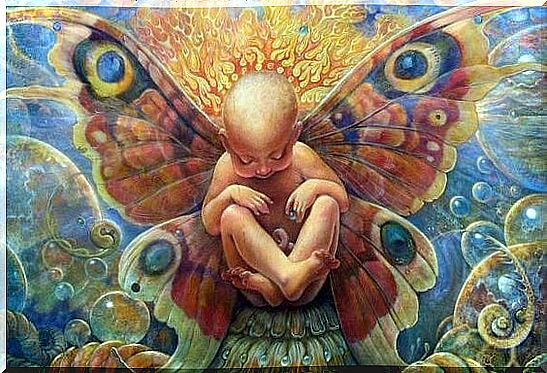
Mom, tell me again how I was born. Dad, tell me how you felt. Tell me if you were afraid during those hours of my birth.
What was your joy like? Was I what you dreamed I would look like when you first saw me? Tell me again how things went when I was born, even though I know the story like no other.
Because they say that remembering brings you back to life and that cherishing memories means shared happiness.
Every child at some point is curious about the moment when he was born. Sometimes the parents or grandparents tell the story and leave out the medical (perhaps traumatic) part of a birth.
They focus on how it felt, write a prologue about life and fill it with magical stories and symbolic details. It gives the child a meaningful origin, a reference point.
These stories that are woven into our family also define us as human beings. Knowing “what happened when we were born” and visualizing our parents seeing us for the first time helps us position ourselves and set the first marker on our timeline. For none of us are able to remember that moment, our own birth.
Plato said that the simple act of being born implies that we start by ‘forgetting’. As the Athenian sage explained to us, when the soul is caught in the body, we lose a vast universe of wisdom that originally belonged to us.
We must therefore start over learning to ‘remember’ what we once knew, what was once our wisdom.
His theory of remembering has some interesting nuances. It also raises questions about what kind of instinctive, primitive knowledge a baby can have in the peaceful, fluid environment of the womb.
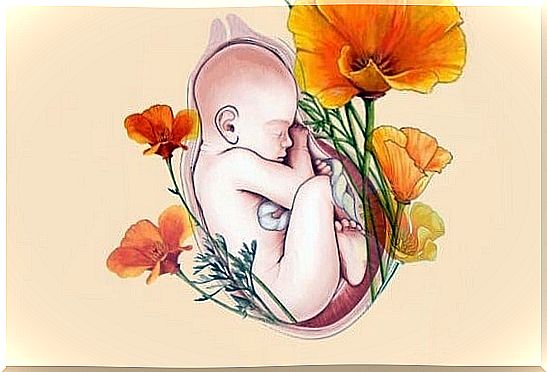
We can recognize faces before we are born
Before we come into the world, a baby already knows that it is a human being. In his immature brain resides the universe of instincts, beating hard and pumping in the brain cells and genes that hide everything about who we are, everything we need is written in this.
This baby, who has seen nothing of the outside world at all, is even able to identify and respond to faces.
At the beginning of June of this year, the University of Lancaster in the United Kingdom published an interesting article in the journal ‘Current Biology’ on the subject. It explains how 34-week fetuses respond exclusively to shadows in the shape of a human face.
Researchers shined light through the mother’s uterine wall to observe how babies moved their heads only when shapes resembling a face passed by. The rest of the stimuli, other forms, did not interest them.
These experiments reveal two simple yet incredible things. First, it means that fetuses between 33 and 34 weeks are already able to process sensory information and to distinguish between different types of information.
Second, and even more fascinating, is that we are ‘programmed’ to connect with our own species. So it doesn’t require any postnatal experience to know, for example, what mom or dad will look like.
The baby won’t recognize their facial features, of course, but it will ‘recognise’, or as Plato would say ‘remember’ what aspect, shape and proportion have their own kind.
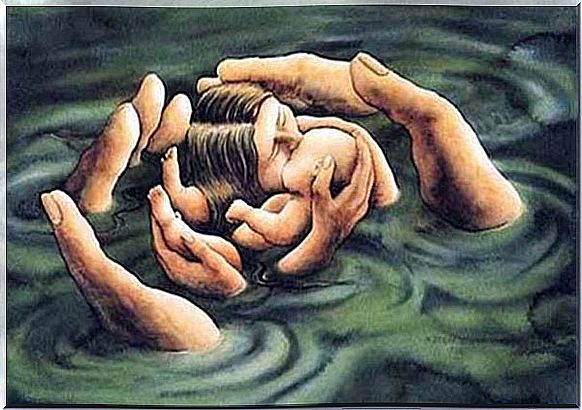
What I remember from when I was born…
What we remember from the moment we came into this world is nothing. It is lost in the sea of time. It’s a tunnel that disappears into the few folds of a brain that hasn’t yet formed a mature prefrontal cortex.
The memory is vague, or nonexistent at all, because a newborn’s brain has a barely functioning hippocampus. The hippocampus is the structure that determines which sensory information will be sent to ‘long-term memory’.
It is not active yet and it will not be until the child turns three, when the child begins to accumulate significant memories.
However, psychologists have found that babies between the ages of three and six months can retain a certain type of memory for quite some time. However, these are implicit or unconscious memories, stored in the cerebellum.
These memories are why babies associate warmth and security with their mother’s voice. They are imprints associated with instinct, that slumbering whisper of our brain that prompts us to, stimulates us to connect with our own species. It’s vital.
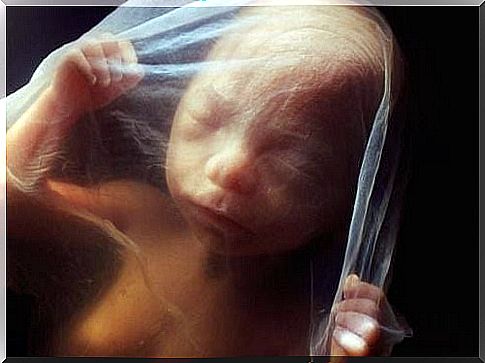
To conclude, none of us will be able to remember our own birth. We don’t know what we felt or thought when we first connected with that external world full of shapes, colors and crazy sounds.
It may have seemed threatening to us. Maybe we panicked. But perhaps that fear disappeared spontaneously when we were placed in our mother’s arms.
Missing this part of our memory makes us appreciate the story our family tells us all the more. That unique, special story of how we came into the world.


